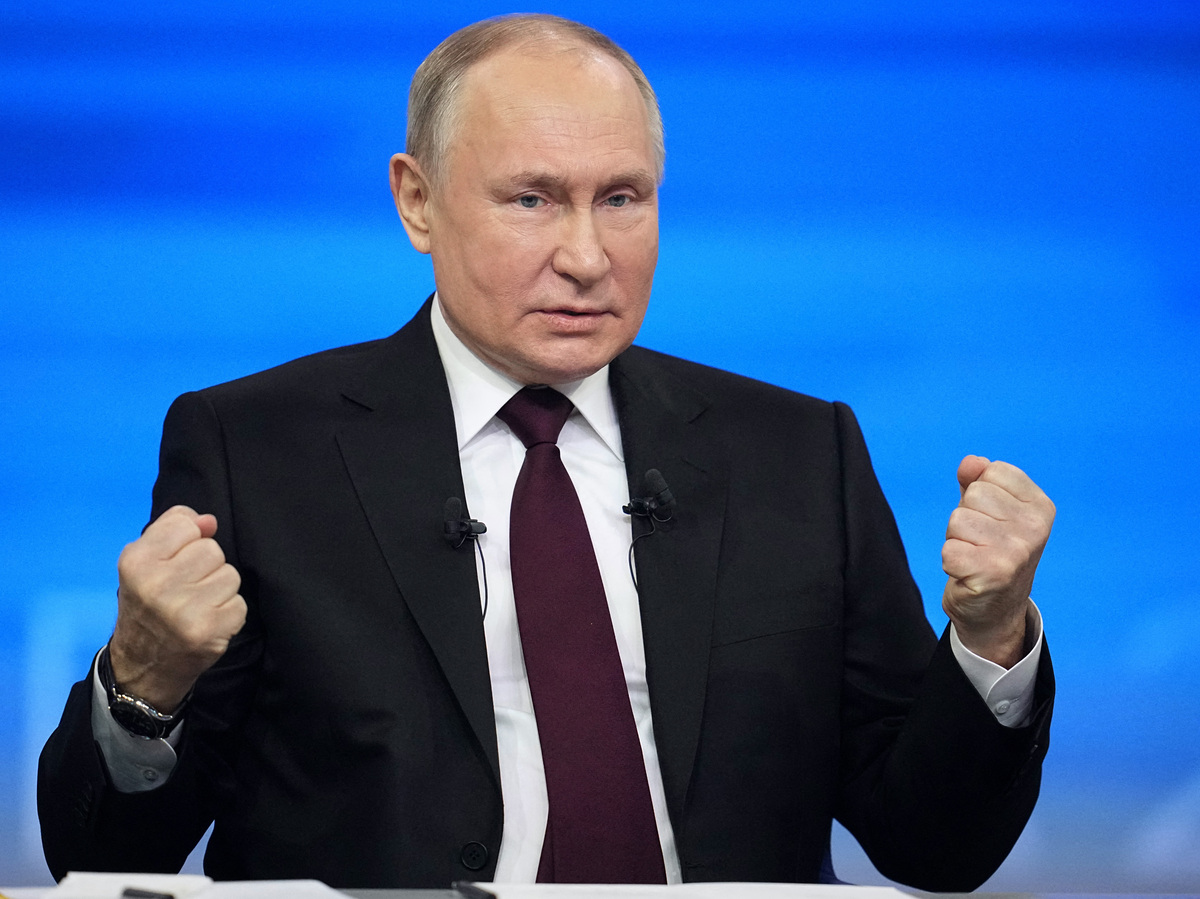
Russian President Vladimir Putin at his annual press conference earlier this month. ALEXANDER ZEMLIANICHENKO/POOL/AFP via Getty Images hide caption

Russian President Vladimir Putin at his annual press conference earlier this month.
ALEXANDER ZEMLIANICHENKO/POOL/AFP via Getty ImagesFor Russian President Vladimir Putin, 2023 began with his war against Ukraine stagnating. It went on to deliver one of the most public challenges to his leadership, ever.
Now as 2023 comes to a close, the man who lead the rebellion against Putin Yevgeny Prighozin is dead. US aid to Ukraine is on the Congressional chopping block, and Putin is getting ready to embark on a fifth campaign for the presidency of Russia. Odds are, he'll win.
NPR's Mary Louise Kelly talks to Russia correspondent Charles Maynes about Putin's year that was, and how things are looking for 2024.
Email us at
This episode was produced by Marc Rivers. It was edited by Courtney Dorning and Mark Katkov. Our executive producer is Sami Yenigun.

 Live Radio
Live Radio